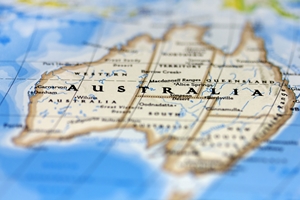
A country's tax code impacts its revenue sources and economic picture. Without tax revenues from business, payroll, goods and more, the Australian government wouldn't be able to meet its responsibilities, nor remain a favourable place for investment.
Our economy's competitiveness in the world relies on the mutually beneficial relationship between business and government. Federal and state government revenue generated from taxation shouldn't be detrimental to entrepreneurship or investment.
How can we get a quick measure of the state of our tax code's impact on our economy? An index.
The independent Tax Foundation created an International Tax Competitive Index (ITCI) ranking for countries of the Organisation for Economic Co-operation and Development (OECD). In 2021, Australia ranked ninth out of 37 nations listed on the ITCI.
Countries are ranked based on 40 variables of a tax code. Australia's property and consumption taxes are considered very competitive in comparison to other countries but its corporate tax rate of 30% is higher than the average 22.9% of other OECD countries. The fifth highest country listed, New Zealand, also has a higher than average corporate tax rate of 28%. Other factors of an attractive economy for investment may include a stable government structure, robust tax treaty network and cost-recovery measures for research and development.
In an effort to help business owners and entrepreneurs gain perspective on our nation's taxes, we've provided a snapshot of the government's revenue sources.
Australia's revenue sources by group
The main sources of tax revenue the ITCI ranks are: Corporate, individual, consumption and property. Australia's revenue by source group weighs heavier on individuals and businesses than the OECD average.
Australia's percentage of tax revenue by group:
- Individual taxes: 42%
- Consumption taxes: 26.3%
- Corporate taxes: 17%
- Property taxes: 9.8%
OECD country average percentage of tax revenue by group:
- Individual taxes: 24%
- Consumption taxes: 32.1%
- Corporate taxes: 9.2%
- Property taxes: 5.6%
- Social Insurance taxes: 26.4%
A bird's eye view of Australia's tax code compared to that of other OECD countries is useful for gaining perspective on your business's tax burden. According to the ITCI, there's more that could be done to improve the economic environment for Australian businesses.
If you have more questions about Australia's tax code, we have provided tax facts on our website for your convenience. WMC Accounting is dedicated to helping businesses prepare statements, calculate your goods and services tax and fringe benefits tax or guide you through an audit with the ATO.



